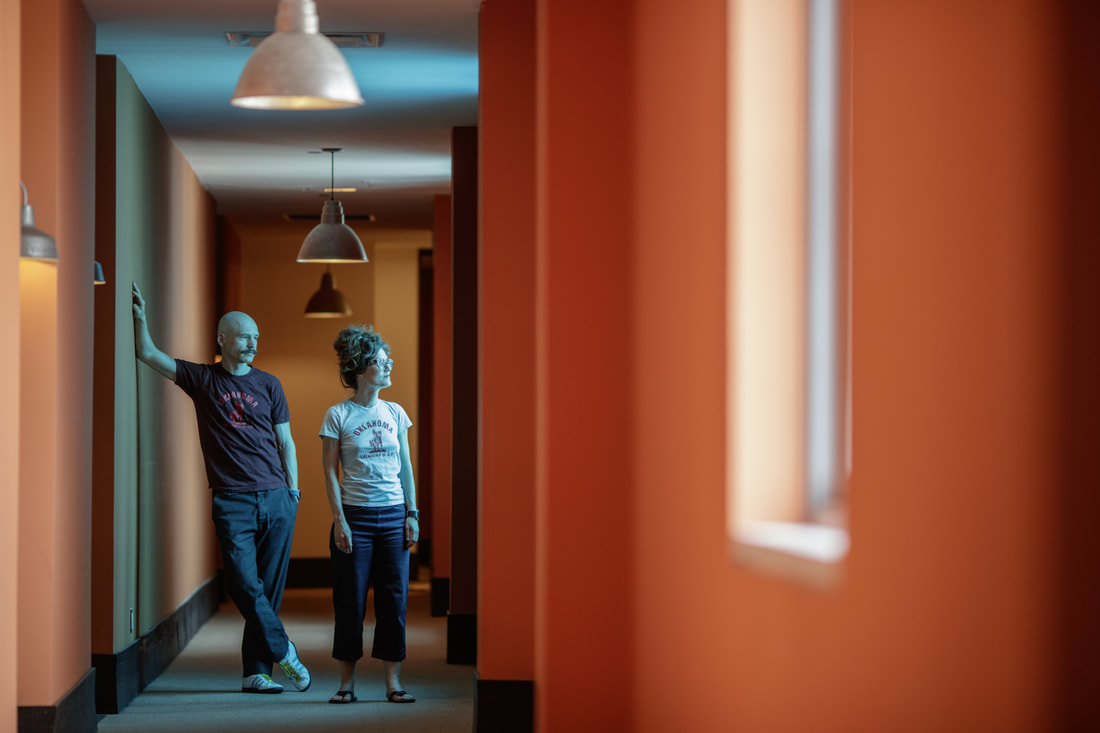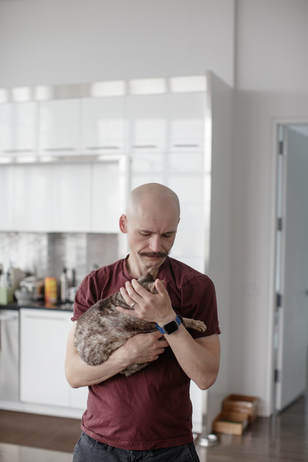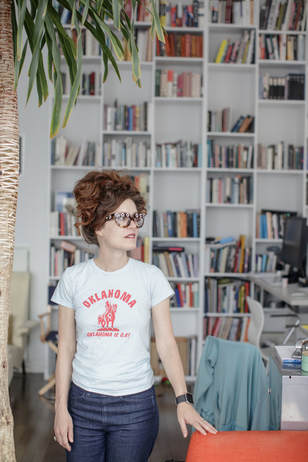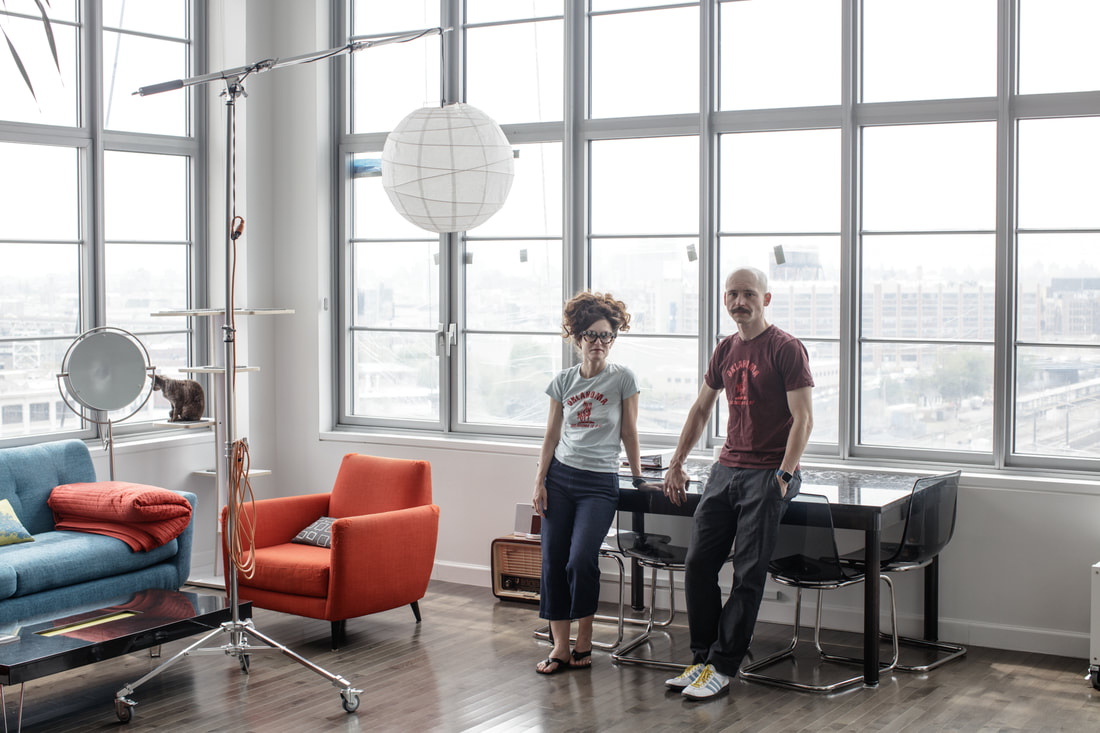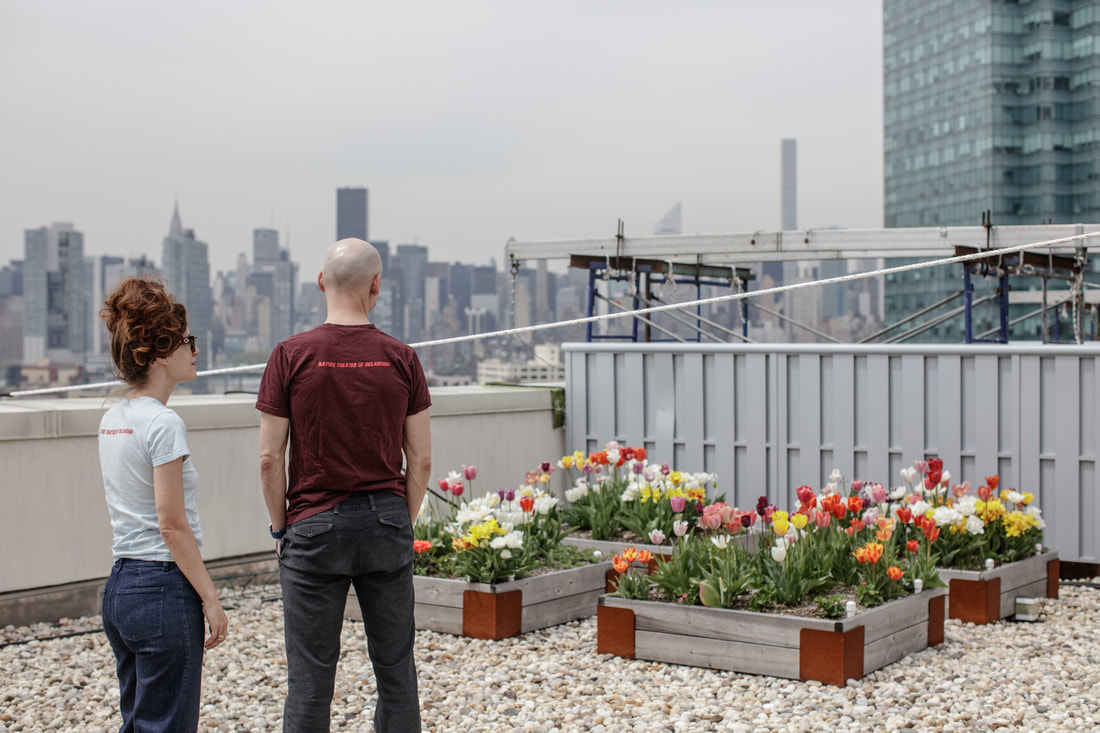DICK MEETSnature theater of oklahoma
IN SUMMER 2016, DUBLIN-BASED THEATRE MAKER DICK WALSH VISITED KELLY COPPER AND PAVOL LIŠKA, FOUNDERS OF PERFORMANCE GROUP NATURE THEATER OF OKLAHOMA, IN THEIR APARTMENT IN NEW YORK. THEY TALKED ABOUT WHY THEY STAY IN THE CITY, ONLY EATING EVERY SECOND DAY AND WHY ARTISTS COVERING UP IS MORE POLITICAL THAN ARTISTS GETTING NAKED.
Dick: So the question I want to ask is a simple one: Why are you in New York? Why do you make art in New York?
[Silence. Followed by laughter.] D: Is that a bad question? Is it a good one? Pavol: Well we would do it anywhere. D: Right. P: This is just where we live. It’s our home. D: So it’s as simple as that, yeah. P: Yeah, there’s no real reason. If I didn’t like it here I’d move and continue to do it elsewhere… I did it in Oklahoma, I did it in Slovakia, I did it in New Hampshire. D: Maybe it’s as simple as that, yeah. But the whole history, tradition here means nothing? Like, why did you come to New York in the first place? P: Well, of course yeah, but that’s like a silly adolescent urge or ambition, because you think that’s going to solve all your lack of talent. D: Yeah, yeah, yeah [laughs]. P: You go where the disease is – you want to get infected, so you go where others work who you want to be like. There are very few artists that come out of Oklahoma. And you don’t have the balls at that time to say ‘I’m going to be the first guy from Oklahoma and then everybody’s going to come to Oklahoma…’ D: Yeah, you’re gonna put it on the map. P: When you want to make theatre, everybody tells you going to New York is what you should do. You go to school and then people make trips to New York, or to London. They tell you in the English speaking world these are the places where you want to be to make theatre.
Kelly: And if you want to make movies it’s LA. P: When we’re somewhere else, and then we come back home, it’s like ‘oh thank god, there are other kinds of people'. This is a more complete universe. You don’t have to be so strictly preoccupied with yourself and your own class and background, you can step outside of yourself a little bit. K: I think when we first moved here what attracted me was the density of people. D: Right yeah. K: One block is Asian restaurants and the next block is Indian restaurants and it’s all compacted into this really small space. I think there are other cities for sure that are diverse, but here everybody is all up in each others’ business and sometimes there’s garbage next to the artwork, and sometimes you can’t tell the difference, and I like that. D: I haven’t been here before, but my impression is that Manhattan is pretty homogeneous, no? You walk around and it’s all middle class white people. P: We don’t go there, you know. You came here right? D: [laughter] Ah yeah, in a way, it’s a boring kind of conversation, people talking about property, you know, ‘what’s nice about New York?’ In a way I was more thinking about the political aspect, it being the centre of power, all the financial stuff happens here, politics happens here… K: Politics really doesn’t happen here, we feel so alienated watching all this shit. P: We are no longer talking to any of that. D: Ok… so you’ve made the decision to… P: No, no, not us, I mean we want to, but artists in general we’re just too pathetic. Sadly we don’t talk to that dynamic, the financial struggles or political struggles, none of that really. We have been castrated. We mean nothing to them. They’re too powerful for us to really even ruffle any feathers. D: I suppose artists before could be controversial, they would break social boundaries, take their clothes off, it got attention. P: There’s pornos everywhere now. Taking your clothes off is like… D: Yeah, it’s gone now. K: It’s off the table. <
|
